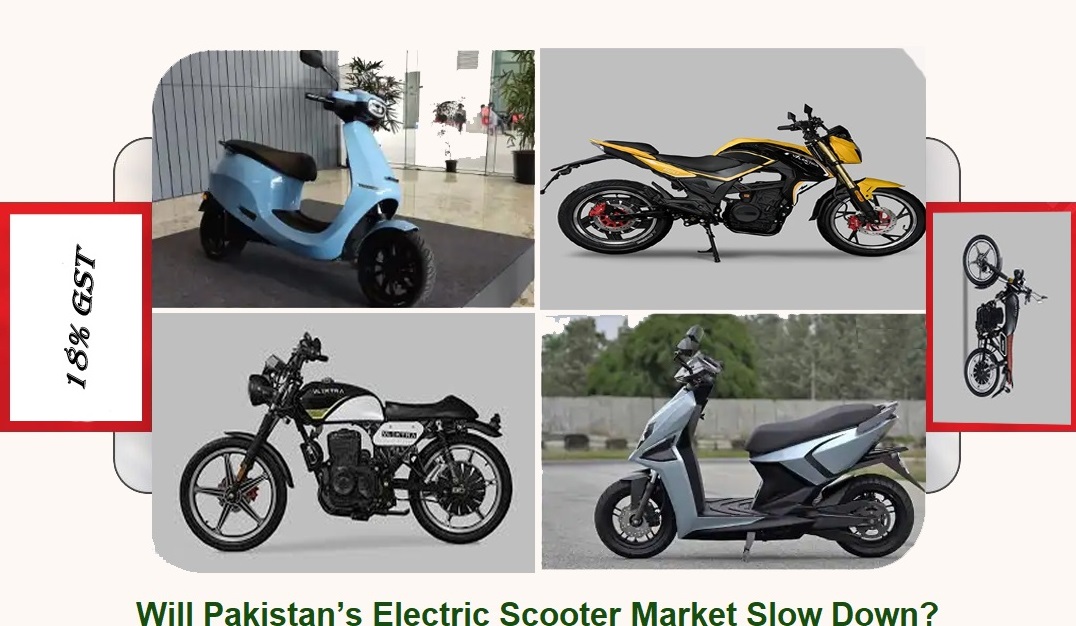Will Pakistan’s Electric Scooter Market Slow Down?

Will Pakistan’s Electric Scooter Market Slow Down?
The Pakistani government's recent decision to enforce an 18% General Sales Tax (GST) on electric scooters has triggered widespread concern among environmental activists and industry players. This significant jump from the prior 1% GST seems to be at odds with the state’s earlier ambitions to promote the use of electric vehicles (EVs) and drive the nation toward cleaner, greener modes of transportation.
The 2019 Electric Vehicle Policy and Previous Tax Benefits
The 2019 National Electric Vehicle Policy was crafted with a focus on boosting the adoption of EVs. A key highlight of this initiative was the imposition of a mere 1% GST on locally-produced electric two-wheelers and three-wheelers. This strategy was aimed at making EV scooters more accessible to everyday consumers. However, the recent steep rise in sales tax by 17% could stifle these initial efforts, creating challenges for the growing electric scooter market.
Economic and Environmental Consequences
This tax hike is expected to have profound effects on Pakistan’s budding EV industry. As producers adjust to the higher tax, the added costs are likely to be passed down to buyers, resulting in increased electric scooter prices. This could lead to a drop in consumer demand, slowing the industry’s expansion. Additionally, fewer electric vehicles on the road would diminish the anticipated benefits of EVs, such as cutting down on carbon emissions and improving air quality. The government's move to impose heavier taxes could potentially put its environmental objectives at risk.
Negative Impact on Job Growth
Besides environmental concerns, this policy shift could hinder economic progress. The growth of the electric vehicle industry offers a multitude of job opportunities, from vehicle manufacturing to EV charging station development. However, discouraging the purchase of scooters through increased taxes could limit the development of these sectors, reducing chances for job creation and economic advancement. The delay in building a comprehensive EV infrastructure would further weaken Pakistan’s prospects for achieving both its environmental and economic goals.
Revisiting the GST Increase: A Need for Pro-EV Policies
It is essential for the government to reconsider the 18% tax hike on electric scooters. Instead of discouraging the industry through higher taxation, authorities should implement supportive measures such as tax breaks, financial incentives, and investing in the charging infrastructure. Such efforts would not only make electric scooters price in Pakistan 2024 more affordable but would also promote broader adoption, leading Pakistan toward a more sustainable future.
The 18% GST on electric scooters represents a challenge for Pakistan’s efforts to build a strong electric vehicle market. For a cleaner, greener future, the government must focus on promoting the growth of the EV sector rather than hindering it through increased taxation.
electric scooters
EV industry
Pakistan transportation
electric vehicle policy
electric vehicles
electric scooter market
New Electric Scooter Price in Pakistan 2024
New Electric Vehicles in pakistan
New EV Cars in 2024
New Electric Scooters in 2024
upcoming electric scooter in pakistan 2025
Related Auto News Updates
Latest Discussions
Comments
















Add a Comment "Will Pakistan’s Electric Scooter Market Slow Down?"